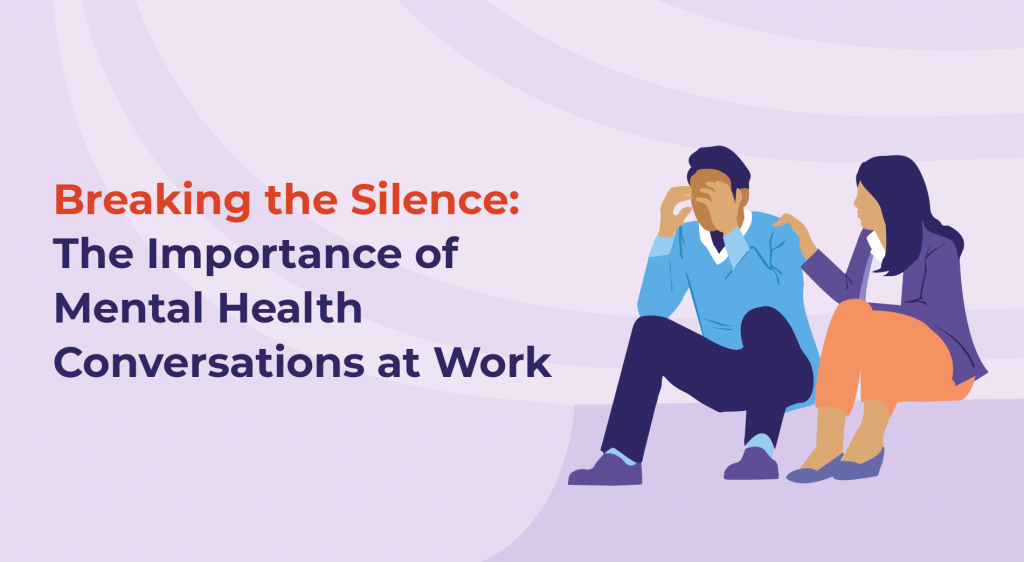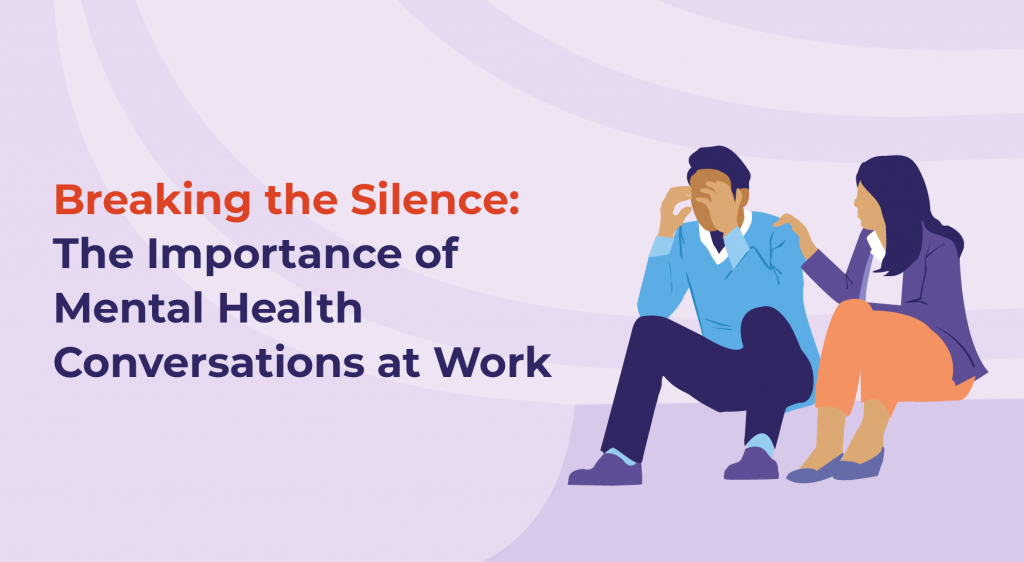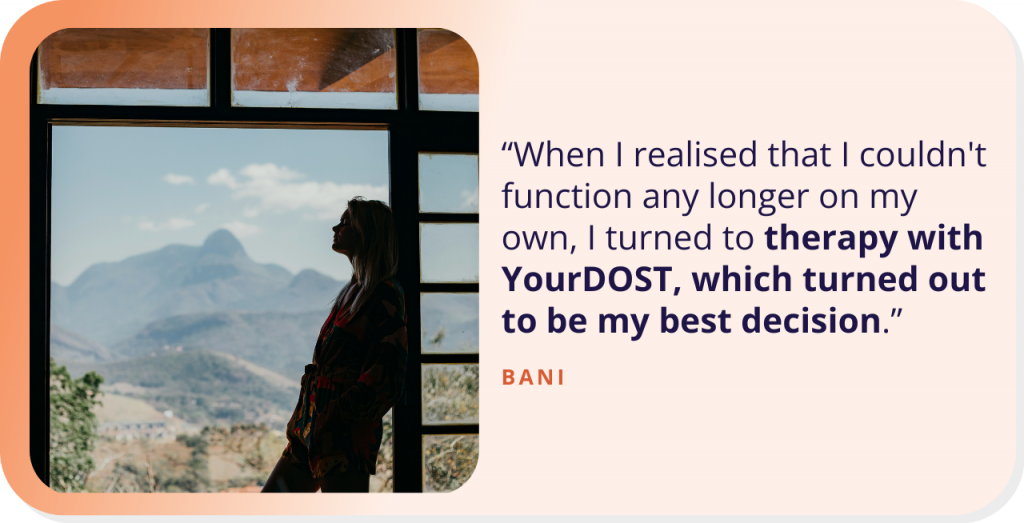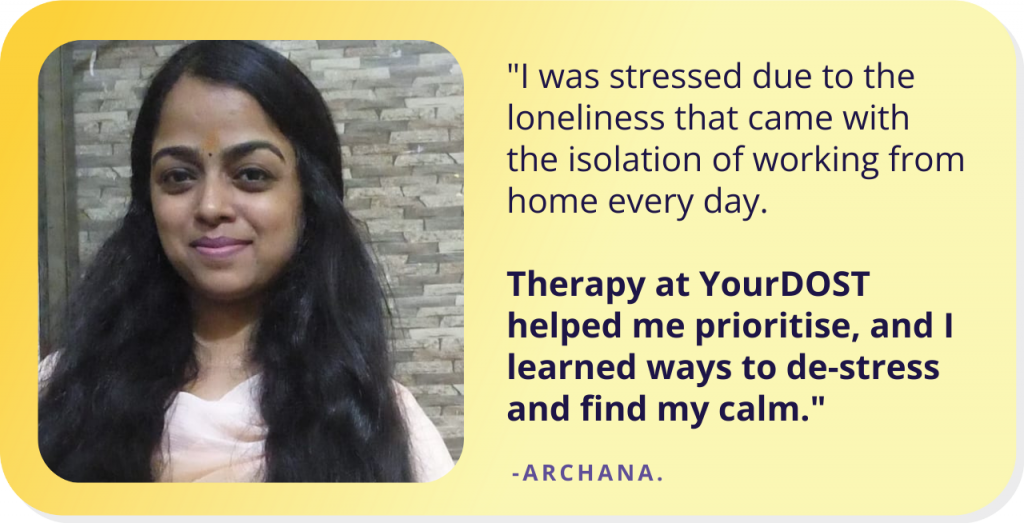
Breaking the Silence: The Importance of Mental Health Conversations at Work

Talking about mental health at work has become more critical in recent years. What was a trend is now crucial to creating a healthy and engaged workforce. Focusing on mental well-being isn’t just helpful—it’s necessary for building a supportive and productive environment where employees can do their best.
Around 14% of employees face mental health issues in workplaces, and it comes with a heavy cost for the organisations as well. Globally, around 50 million years of work are lost every year to anxiety and depression.
Why is having mental health conversations at work meaningful?
According to Psychiatrists, having open conversations can be effective and help people going through mental health issues move forward.
Having conversations about mental health at work helps employees get the support and help they need from their colleagues. 63% of employees say that when their co-workers are kind, it positively impacts their mental health.
By addressing mental health topics, organisations can transform their work environments into healthier and more supportive spaces for everyone, promoting optimism and motivation.
How do you navigate mental health conversations at the workplace?
- Create a positive environment:
Stigma often prevents people from talking openly about mental health. But in a supportive space, they feel more comfortable sharing. According to a study by Wrike, 38% of employees consider a positive work environment a crucial metric for job seeking.
Creating a positive work environment builds trust and strengthens team connections.
Here are some tips you can follow:
- Being mindful of how you are talking can help prevent triggering mental health issues. Avoid phrases that could hurt or alienate others, like casually labelling someone “crazy.”
- Dismissing mental health concerns with remarks like “Don’t be so sensitive” or “Stop being paranoid” can be harmful.
- Try to be compassionate with your language so that they are not triggered.
- Try to provide a secure and nonjudgmental environment so individuals feel confident about sharing and discussing.
- Try to listen to them actively and don’t interrupt. It is important not to pressure them into opening up; the goal is to give them a choice while normalising these conversations.
- Don’t try to fix the issue:
Knowing how to support those around us is crucial without going beyond what is appropriate or acceptable. The aim is not to “fix” their issue or “heal” them immediately because the problems they are going through are contextual, and they are the ones who know the best about it. It takes time to heal and figure out solutions.
How should you support them?
- Sometimes, the most impactful thing we can do is check in and show we care.
- Checking in doesn’t mean that someone has to be a therapist to individuals suffering or trying to diagnose them.
- Simply being there to listen and offer friendly support is often enough. If they need more help, guiding them to a professional is the right step.
- Continue to check in:
Conversations about mental health are never one-time; they require frequent check-ins.
How should you go about it?
- One must be aware of one’s capacity to manage these discussions.
- If someone feels they can’t support a co-worker without affecting their mental health, it is okay to direct them to other resources like the HR team or an Employee Assistance Program.
Be an advocate for mental health at your workplace. Change starts with one individual and gradually spreads. An essential thing to remember is that to practice self-care, one should not sacrifice one’s mental well-being to help others.
These conversations can be stressful and uncomfortable but can make a huge difference. Staying attentive and offering opportunities to open up and feel heard can positively impact someone’s work life.
click here to learn more about our business offerings.







